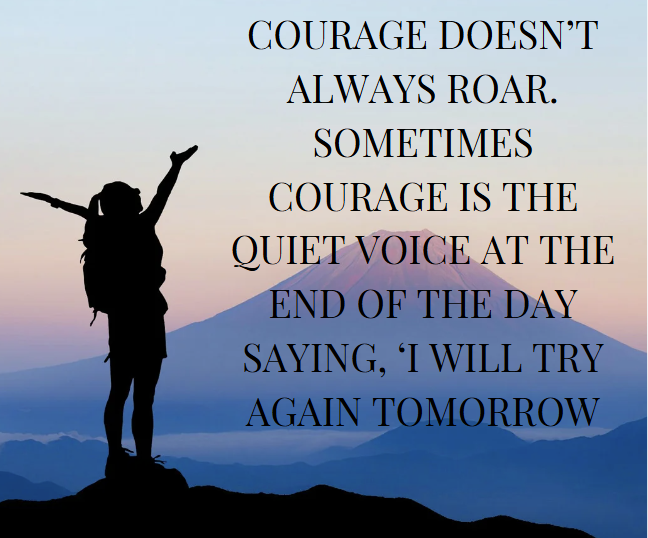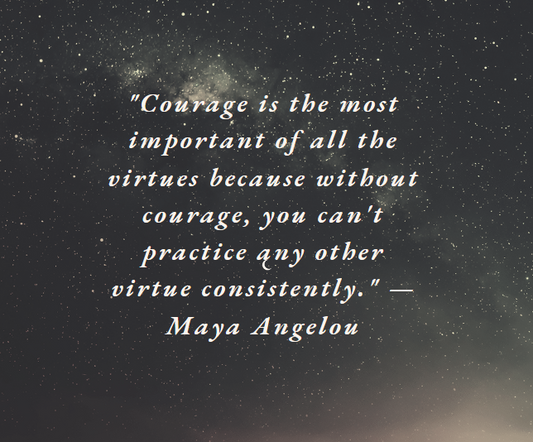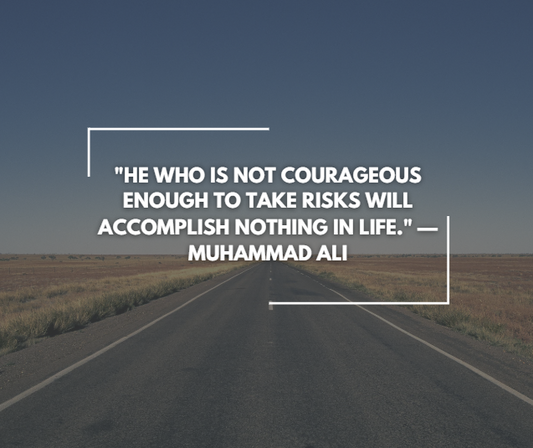Mary Anne Radmacher’s quote, “Courage doesn’t always roar. Sometimes courage is the quiet voice at the end of the day saying, ‘I will try again tomorrow,’” offers a gentle yet profound perspective on what it means to be courageous. This quote highlights that courage is not always about dramatic, bold actions or grand gestures. Instead, it can manifest in the quiet, steadfast resolve to keep going despite challenges and setbacks.
The Quiet Strength of Everyday Courage
In a world that often celebrates grand acts of bravery—such as heroism in crises or significant achievements—Radmacher’s words remind us that everyday courage is equally significant. It’s found in the small, consistent actions of persistence and resilience. This form of courage is characterized by a subtle yet powerful inner strength that drives individuals to keep moving forward even when faced with difficulties.
-
Perseverance Through Small Steps: Courage often involves taking small, incremental steps toward a goal, even when progress seems slow or uncertain. The willingness to continue trying, despite obstacles, reflects a quiet yet formidable strength. Each small effort contributes to overall progress and demonstrates a commitment to personal growth and resilience.
-
The Role of Self-Encouragement: Sometimes, courage is simply about encouraging oneself to persevere. The “quiet voice” Radmacher refers to is a form of self-compassion and encouragement. It’s the inner dialogue that reassures us that failure is not the end but a stepping stone toward eventual success.
Examples of Quiet Courage
-
Everyday Resilience: Many people exhibit quiet courage in their daily lives. For instance, someone struggling with personal challenges, such as health issues or financial difficulties, who continues to face each day with determination and hope, embodies this form of bravery. Their courage is not marked by loud declarations but by the persistent effort to keep moving forward.
-
Personal Growth and Learning: Individuals who face setbacks in their personal or professional lives and choose to try again demonstrate quiet courage. Whether it’s a student persevering through academic challenges or a professional overcoming career obstacles, their commitment to trying again reflects a deep-seated bravery.
The Importance of Recognizing Quiet Courage
Recognizing and valuing quiet courage is essential for several reasons:
-
Encouragement and Support: Acknowledging the quiet, consistent efforts of others can provide much-needed encouragement. Recognizing the significance of perseverance helps build a supportive environment where individuals feel valued for their ongoing efforts, not just their visible successes.
-
Self-Awareness and Growth: Understanding that quiet courage is a valid and important aspect of bravery can enhance self-awareness. It helps individuals appreciate their own efforts and resilience, fostering a positive mindset and reinforcing their commitment to personal growth.
Cultivating Quiet Courage
-
Set Manageable Goals: Break down larger goals into smaller, achievable steps. This approach allows for continuous progress and helps maintain motivation, even in the face of challenges.
-
Practice Self-Compassion: Be kind to yourself during setbacks. Recognize that perseverance is a strength, and each attempt is a step toward achieving your goals.
-
Celebrate Small Wins: Acknowledge and celebrate the small victories along the way. Recognizing and appreciating these moments of progress reinforces the value of quiet courage and encourages continued effort.
Mary Anne Radmacher’s quote beautifully captures the essence of quiet courage—the kind of bravery that often goes unnoticed but is profoundly impactful. It’s not always about roaring with strength but about the persistent, quiet determination to continue trying despite difficulties. Embracing and valuing this form of courage can lead to personal growth, resilience, and ultimately, success. By understanding and nurturing the quiet strength within ourselves and others, we can foster a deeper appreciation for the ongoing efforts that drive us toward our goals.





